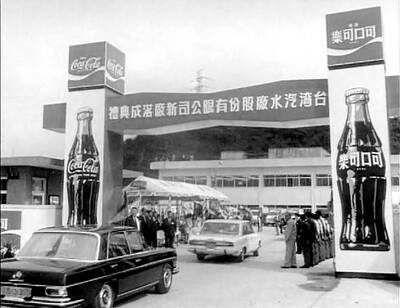The huge ambition of Kamila Shamsie’s fifth novel is announced in the prologue. As an unnamed captive is unshackled and stripped naked in readiness for the anonymity of an orange jumpsuit, he wonders: “How did it come to this?” The vastness of the question as applied to a prisoner in Guantanamo is a challenge to which this epic yet skilfully controlled novel rises in oblique and unexpected ways.
Unfolding in four sections, the novel traces the shared histories of two families, from the final days of World War II in Japan, and India on the brink of partition in 1947, to Pakistan in the early 1980s, New York in the aftermath of Sept. 11 and Afghanistan in the wake of the ensuing US bombing campaign. At its heart is the beautifully drawn Hiroko Tanaka, first seen in Nagasaki in August 1945 as a young schoolteacher turned munitions factory worker whose artist father is branded a traitor for his outbursts against the emperor and kamikaze militarism. She falls in love with a lanky, russet-haired idealist from Berlin, Konrad Weiss, with whom she shares — along with other key characters — a love of languages. But their romance is curtailed by the flash of light that renders Konrad a shadow on stone and burns the birds on Hiroko’s kimono into her back, a fusion of “charred silk, seared flesh.”
Hiroko finds refuge in Old Delhi, in the twilight of the raj, with her dead fiance’s sister Ilse and her English husband James Burton. Hiroko is drawn to Sajjad Ali Ashraf, a dashing Muslim employee who agrees to teach her Urdu. Her hosts discourage their romance, yet the couple grow closer as partition sunders Sajjad from Delhi as shockingly as Nagasaki was lost to Hiroko.
In Karachi, the saga of the Weiss-Burtons and Tanaka-Ashrafs shifts to Hiroko and Sajjad’s son Raza, a linguist given to impersonating Afghan refugees from the Soviet invasion of 1979, and James and Ilse’s son Henry, a Kipling-like figure mourning a lost Indian childhood (his daughter is named Kim). As Harry Burton, Henry has transferred his idealistic allegiance to his adoptive US, becoming a covert CIA operative in cold-war Pakistan. Raza’s naive bid for a kind of gap year in Afghanistan’s training camps with his Afghan friend Abdullah brings adventures with gunrunners and poppy growers, but also sobering loss for the family and enduring guilt for Raza.
After Hiroko decamps to New York, disgusted by nuclear posturing between India and Pakistan, and encounters Abdullah as a taxi driver, the final section alternates between an apartment she shares with Kim, overlooking the smoldering fires of Ground Zero, and Afghanistan, where Harry and his interpreter Raza have joined forces in a private security firm. CIA backing for the mujahideen’s resistance war, and abandonment of them once the Soviet army withdrew, is seen as a grim policy failure whose legacy is being reaped in “Jihadi blowback.” But pivotal to the novel’s final betrayals, guilt and loss is a conversation fraught with suspicion and misunderstanding between Kim and Abdullah.
Through its succession of seemingly disparate, acutely observed worlds, Burnt Shadows reveals the impact of shared histories, hinting at larger tragedies through individual loss. There are minor flaws in plotting, and occasional excesses, but the subtlety lies in repeated patterns of allegiance and estrangement, betrayal and atonement, in the echoes between kamikaze pilots and suicide bombers, or between Ilse’s alacrity in branding Sajjad as a rapist in the novel’s Forsterian vignette and Kim’s suspicion of Muslims after 9/11.
The historical threads between Nagasaki and Guantanamo are implicit, though crucial. In Hiroko’s view, all it takes to wipe people out without scruple is to “put them in a little corner of the big picture” — whatever the “war” in the frame. A similar logic informs a chilling conversation about interrogation techniques. “What wouldn’t I do if I thought it was effective?” Harry muses. “Almost nothing. Children are out of bounds. Rape is out of bounds. But otherwise ... what works, works.” Tellingly, he asks not to be quoted to his daughter.
The identity of the Guantanamo captive remains unclear till the powerful denouement, as events unfold with a malign logic whereby even a man’s stooping for a cricket ball can be fatally misconstrued. Any reader anticipating a predictable yarn about the radicalization of Islamist youth may feel cheated. Far more, I suspect, will feel challenged and enlightened, possibly provoked, and undoubtedly enriched.

July 28 to Aug. 3 Former president Chiang Kai-shek (蔣介石) reportedly maintained a simple diet and preferred to drink warm water — but one indulgence he enjoyed was a banned drink: Coca-Cola. Although a Coca-Cola plant was built in Taiwan in 1957, It was only allowed to sell to the US military and other American agencies. However, Chiang’s aides recall procuring the soft drink at US military exchange stores, and there’s also records of the Presidential Office ordering in bulk from Hong Kong. By the 1960s, it wasn’t difficult for those with means or connections to obtain Coca-Cola from the

No one saw it coming. Everyone — including the Chinese Nationalist Party (KMT) — expected at least some of the recall campaigns against 24 of its lawmakers and Hsinchu Mayor Ann Kao (高虹安) to succeed. Underground gamblers reportedly expected between five and eight lawmakers to lose their jobs. All of this analysis made sense, but contained a fatal flaw. The record of the recall campaigns, the collapse of the KMT-led recalls, and polling data all pointed to enthusiastic high turnout in support of the recall campaigns, and that those against the recalls were unenthusiastic and far less likely to vote. That

A couple of weeks ago the parties aligned with the People’s Republic of China (PRC), the Chinese Nationalist Party (KMT) and the Taiwan People’s Party (TPP), voted in the legislature to eliminate the subsidy that enables Taiwan Power Co (Taipower) to keep up with its burgeoning debt, and instead pay for universal cash handouts worth NT$10,000. The subsidy would have been NT$100 billion, while the cash handout had a budget of NT$235 billion. The bill mandates that the cash payments must be completed by Oct. 31 of this year. The changes were part of the overall NT$545 billion budget approved

Trolleys piled high with decapitated silicon monster heads, tattooed dealers lurking in alleyways, bin bags of contraband hidden behind shop counters: welcome to the world of Lafufus. Fake Labubus (拉布布), also known as Lafufus, are flooding the hidden market. As demand for the collectable furry keyrings soars, entrepreneurs in the southern trading hub of Shenzhen are wasting no time sourcing imitation versions to sell to eager Labubu hunters. But the Chinese authorities, keen to protect a rare soft-power success story, are cracking down on the counterfeits. “Labubus have become very sensitive,” says one unofficial vendor, in her small, unmarked, fake designer goods